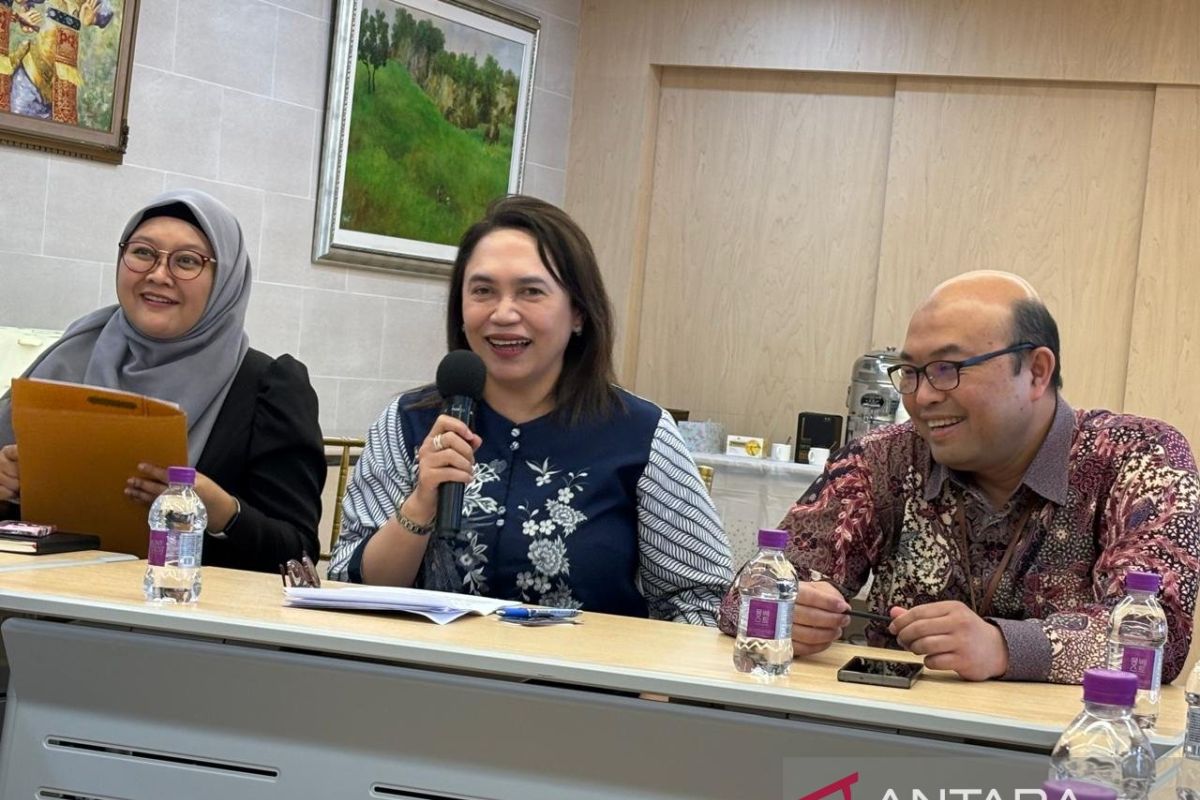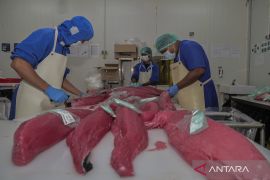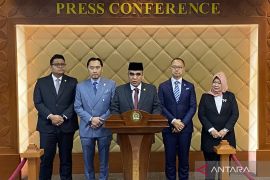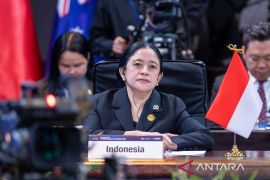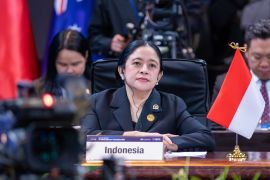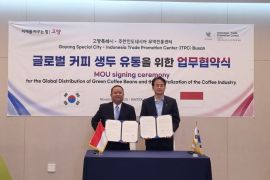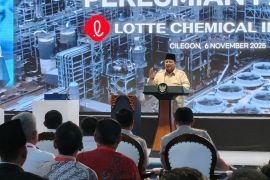"South Korea is facing an ageing population, which causes a labor shortage where the domestic workforce cannot fulfil the available jobs. Hence, they need an overseas workforce, including from Indonesia," Kartika stated here on Tuesday (May 14).
Kartika's remarks were conveyed during a discussion with a delegate of Indonesian journalists, including ANTARA, participating in the Indonesia Next Generation Journalist Network on Korea, organized by the Korea Foundation and the Foreign Policy Community of Indonesia.
South Korea recorded a decline of 7.7 percent in its birth rate in 2023 and a fertility rate of 0.72 in the same year, the lowest since 1970. If the trend continues, the productive-age population of South Korea will decrease drastically by 15-20 years.
The embassy's protocol and consular affairs coordinator, Teuku Zulkaryadi, highlighted professional welders as one of the most sought-after among South Korean companies, and Indonesian welders can apply to work there.
He stated that last year, the embassy had received requests to send a total of five thousand Indonesian professional welders to work in major South Korean companies, such as Hyundai and Daewoo.
"After the COVID-19 pandemic, orders received by the South Korean shipbuilding industry are surging. Hence, they need welders to work in their shipbuilding and construction industries," Zulkaryadi explained.
However, the companies stated that they would hire only professional welders holding the highest certificate recognized by international standards.
"Due to this criteria, we can only send 1,500 professional welders by last December," he remarked.
Zulkaryadi highlighted that the South Korean government also carries out the Employment Permit System (EPS) program to recruit workforce from 16 cooperating countries, including Indonesia, through the government-to-government (G2G) approach.
The embassy official explained that the program is available for low-skilled jobs that no longer interest South Koreans.
For Indonesia, the program is available for workers in the manufacturing, fishery, construction, agriculture, and service sectors, he stated. However, the embassy has yet to receive requests from South Korean companies to send workers to those sectors.
According to the latest South Korean immigration authority data, 60 thousand Indonesian migrant workers are working legally there, with some 40 thousand recruited through the G2G approach through the Manpower Ministry and the Indonesian Migrant Workers Protection Agency (BP2MI).
Most Indonesian migrant workers in South Korea are employed in the manufacturing and fishery industries.
Related news: Indonesia eyes drawing more South Korean tourists through SITF 2024
Related news: UI, campuses in South Korea to develop technology industry
Related news: BP2MI optimises coordination on missing Indonesians in South Korea
Translator: Yashinta Difa P, Nabil Ihsan
Editor: Azis Kurmala
Copyright © ANTARA 2024
